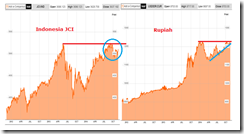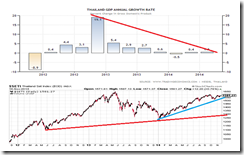The Vietnamese government mandated a 15% increase in minimum wages a few days back.
Speaking in behalf of Japanese companies whom has expressed concerns over rising input costs, the Nikkei Asia reports
Prime Minister Nguyen Tan Dung approved the wage adjustment proposals made by the National Wage Council without substantial changes. The new minimum wages will become effective on Jan. 1, 2015.The decision means that Vietnam's minimum pay will post a 17-fold jump from 15 years ago, in keeping with the rapid economic growth during the period. The upward trend of wages is likely to continue as workers stage strikes in demand of higher wages.Increased labor costs could have serious repercussions for Japanese companies operating in the country.The minimum monthly salary in Region 1, which includes urban areas like Hanoi and Ho Chi Minh City, will rise 14.8% from 2014 to 3.1 million dong ($145) in 2015. While Region 2, mostly made up of suburban areas, will rise 14.6% to 2.75 million dong. Provincial Region 3 and the rural Region 4 will increase by 14.3% and 13.2%, respectively, to 2.4 million dong and 2.15 million dong.The increases for Region 3 and 4 will be 20,000-50,000 dong less than the National Wage Council's August proposals for those regions, which called for pay increases of over 15%. The differences indicate the government's acknowledgment of mounting concerns by foreign companies over labor costs.
Why is this significant? Because simply stated, government’s inflation statistics (from tradingeconomics.com) and reality doesn’t match. There won’t be amplified political pressures for wage hikes if not for significant cost of living increases!
This report from a domestic news outfit, Thanhniennews.com reveals of the implied discrepancy (bold mine)
even that salary only covers 69-77 percent of a Vietnamese person's basic living costs, according to the survey, which polled 1,500 workers in 12 cities and provinces during the first half of this year.Up to 13 percent of workers said their salaries do not cover their basic living costs, 25 percent said they had to spend carefully and 50 percent said their salary only affords the most basic standard of living.Vietnam's economy, which recorded growth of 5.42 percent last year, is expected to expand 5.8 percent in 2014, in line with a government target. The Southeast Asian country is expected to keep annual inflation at a rate below 5 percent, or about 2 percentage points below a government target.
Why shouldn’t there be increased inflationary pressures in Vietnam's economy?
Vietnam’s government has been on a spending binge as revealed by the huge fiscal deficits (as of 2013). How are these being funded? External borrowing plays a big role in the financing. External debt has been ballooning in nominal terms and as well seen from debt-gdp ratio.
So borrowing externally and I would suppose also internally has caused a surge in M2.
Balance of trade has been negative of late even as current account remains positive-–most likely as a result of external borrowings.
So the Vietnamese (both private and public) has been spending more than they have been producing. Spending which has been financed largely by debt.
Naturally, this entails strains on the domestic currency. The USD-Vietnamese dong has been soaring. The USD-VND now at July milestone highs. All these points to bigger inflation pressures than what has been revealed by government statistics.
Nonetheless like almost elsewhere, Vietnam’s stocks has been at a 5 year high. It has only been in August where the Ho Chi Minh Index has seen some selling pressures in the face of a severely weakening dong.
What Vietnam’s macro fundamentals reveal has not only been inaccurate statistics but importantly structural fragilities making her economy vulnerable to shocks either internally or externally triggered.
Yes the Vietnamese government have recently posted record foreign exchange reserves but this have been funded by external borrowings.
And ASEAN’s economic troubles keep mounting.
Indonesia has raised interest rates for the sixth time since June 2013 as the government reduced oil subsidies and allowed for a 30% hike in fuel prices.
From Reuters:
Indonesia's central bank, moving quickly to contain inflation after the government raised fuel prices more than 30 percent, hiked its benchmark interest rate by 25 basis points to 7.75 percent on Tuesday.In his first major economic policy decision, President Joko Widodo on Monday night raised subsidised gasoline and diesel prices by more than 30 percent to help fund his reform agenda and tackle the country's budget and current account deficits.
What has adjusting interest rates (a monetary tool) have to do with fuel price increases (real economy)--the latter of which should signify a temporary boost? This relationship has hardly been questioned by the consensus or by media or explained by 'experts'.
Well, the answer can be shown above.
The Indonesian government has likely been using fuel prices as a pretext to curb runaway private sector credit!
Indonesia's political economy used to be the poster child for the ASEAN boom which had been blessed by upgrades by credit rating agencies.
Indonesia's political economy used to be the poster child for the ASEAN boom which had been blessed by upgrades by credit rating agencies.
And true enough, credit upgrades got Indonesians to rack up more credit. Yes this applies even to the government where fiscal deficits has widened, which as usual has been financed by a surge in external debt and domestic monetary inflation.
At the end of the day, Indonesia's credit bubble has inflated both a property and a (signs of deflating?) stock market bubble as seen by the JCI Index (left window) even as the rupiah has been significantly weakening (see right window, now the USD-IDR approaches January 2014 highs).
Remember Indonesia has been labeled one of Emerging market's fragile five and currently has been marked as one of the most expensive bourses in the world by the Telegraph!
Remember Indonesia has been labeled one of Emerging market's fragile five and currently has been marked as one of the most expensive bourses in the world by the Telegraph!
Finally, Thailand just posted a .6% growth in the 3Q.
From the Strait Times: Thailand's planning agency on Monday trimmed its economic growth forecast for this year to 1.0 per cent from 1.5-2.0 per cent seen in August, citing weak exports. In 2013, growth was 2.9 per cent. The Thai economy grew a much less-than-expected 0.6 per cent in July-September quarter from the same period a year ago, and expanded 1.1 per cent from the previous three months, the National Economic and Social Development Board, which compiles gross domestic product (GDP) data, said earlier on Monday.
I recently questioned the optimism by Thai authorities who predicted a 1.5% growth for 2014: 2Q GDP of a marginal +.4 growth in GDP spared the Thai economy from a technical recession (chart from tradingeconomics.com) Given the stagnant 1H, it would take about 3% growth for the 2H in order to meet the BoT’s 1.5% target this year. Yet the BoT admits that debt burdened consumers have been marginally improving.
So the Thai economy continues to struggle. Aside from the politics, onerous debt burdens should continue to weigh on the economy.
Yet does the Thai government know that produce 1% GDP for 2014 would require 2.5% growth in 4Q? Have they been dreaming?
Don’t worry be happy, in today's world illusions prevail. Bad economic news has become good news for stocks. The Thai experience of near recession growth or stagnation comes with near milestone high stocks!!
Parallel universes have now been the fad. As one may notice, regardless of fundamentals, stocks have been foreordained to rise forever!!!







No comments:
Post a Comment